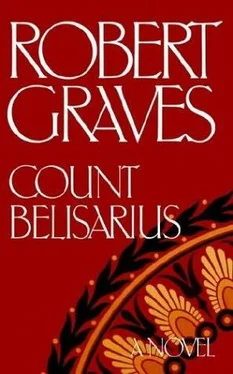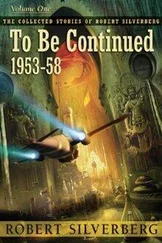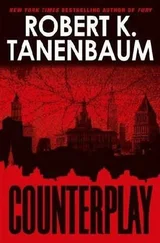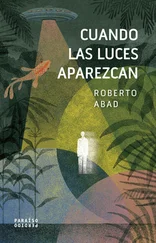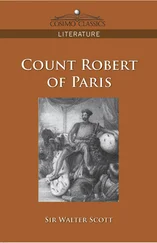Robert Graves - Count Belisarius
Здесь есть возможность читать онлайн «Robert Graves - Count Belisarius» весь текст электронной книги совершенно бесплатно (целиком полную версию без сокращений). В некоторых случаях можно слушать аудио, скачать через торрент в формате fb2 и присутствует краткое содержание. Жанр: Исторические приключения, на английском языке. Описание произведения, (предисловие) а так же отзывы посетителей доступны на портале библиотеки ЛибКат.
- Название:Count Belisarius
- Автор:
- Жанр:
- Год:неизвестен
- ISBN:нет данных
- Рейтинг книги:3 / 5. Голосов: 1
-
Избранное:Добавить в избранное
- Отзывы:
-
Ваша оценка:
- 60
- 1
- 2
- 3
- 4
- 5
Count Belisarius: краткое содержание, описание и аннотация
Предлагаем к чтению аннотацию, описание, краткое содержание или предисловие (зависит от того, что написал сам автор книги «Count Belisarius»). Если вы не нашли необходимую информацию о книге — напишите в комментариях, мы постараемся отыскать её.
Count Belisarius — читать онлайн бесплатно полную книгу (весь текст) целиком
Ниже представлен текст книги, разбитый по страницам. Система сохранения места последней прочитанной страницы, позволяет с удобством читать онлайн бесплатно книгу «Count Belisarius», без необходимости каждый раз заново искать на чём Вы остановились. Поставьте закладку, и сможете в любой момент перейти на страницу, на которой закончили чтение.
Интервал:
Закладка:
So they escaped, taking with them, as legitimate plunder, apples and nuts and honey-cakes and spiced buns from a line of satchels hanging in a row in the shed. (This was Shrove-tide, when the oblates were given a dole of dainties to reconcile them to the coming rigours of Lent.) Singing the paean of victory, they returned to their own school and there made a fair division of their plunder among the scholars. But Belisarius allowed nothing to be given to those few boys who had held back from the fighting; and one of these, by name little Apion, Malthus's most industrious pupil, treasured a lasting grudge against Belisarius. As for the twenty captured oblates, they were released by Malthus's orders, but excommunicated by their Abbot for a full month.
Belisarius (whose mother died about this time) grew to be a tall, strong lad, with great breadth of shoulder. His features were noble and regular, his hair black, thick, and curly, and he had a frank smile and a clear laugh. Only from his cheek-bones, which were somewhathigh, would his barbarian descent have been guessed. At school he satisfied his masters with the lively attention he gave his studies, and his schoolfellows with his courage and skill in wrestling and football. He was also a strong swimmer. He formed a small troop of young cavalrymen from the elder boys of the school, supplying them with cobs from his estate if they could not afford to mount themselves, and trained them in his uncle's park. They exercised chiefly in archery and lance-work upon stuffed sacks hung from the boughs of an oak. But they did not omit to engage in tourneys and skirmishes with one another, using blunt weapons; and even in miniature sea-battles from boats on the River Hebrus that runs past the city of Adrianople. Thus they became proficient soldiers before they went to train at the cadet-school at Constantinople, as they all did in a body — disdaining to enter the Civil Service. Some of them, the sons of tradesmen and debarred by decree from leaving their hereditary occupations, had first to buy exemption with bribes at the Palace.
CHAPTER 2
I have alrcady written something about Belisarius's uncle, Modestus, with his Roman ways and his strained rhetorical talk full of puns and recondite allusions. I met him once only, nearly sixty years ago, but my memory of that occasion was often afterwards refreshed by Belisarius, one of whose favourite diversions in private was to mimic Modestus and make my mistress Antonina laugh. I have also inherited a volume of Modestus's poems and another of his painfully composed letters, in the style of Pliny, both of which are inscribed with a dedication to Belisarius. Moreover, when I was in Rome during the siege I met many noble Romans who spoke and behaved in very much the same manner as he, so I know the type well.
The scene is the dining-room of Modestus's villa. There are present: Modestus himself, the burgess Simeon, Malthus the schoolmaster, three other local dignitaries, Bessas (a big, tough Gothic cavalry officer quartered in the town), Symmachus (an Athenian professor of philosophy), Belisarius, now fourteen years of age, with Rufinus and Armenian John and Uliaris and Palaeologus the tutor. Everything is arranged exactly in the old Roman style, for Modestus is an antiquarian and makes no mistakes: he can justify everything by quotation fromsomc Latin author or other of the Golden Age. His guests feel a trifle self-conscious, especially Simeon, who is a convinced Christian and somewhat scandalized by the lasciviousness of the painted frieze that runs between windows and ceiling — the subject being Bacchus, God of Wine, on his drunken return from India. In deference to the wishes that Modestus has expressed in his letter of invitation, most of his guests are dressed, Roman-fashion, in long, white, short-sleeved woollen tunics. But the burgess Simeon is true to the smoky woollen blouse and loose pantaloons that every ordinary inhabitant of Thrace wears, who is not a cleric; and Bessas wears a linen tunic with broad vertical stripes of yellow, green, and red, and breeches of sewn skins, because he is a Goth. Bessas also wears a brownish-yellow military cloak fastened with a large amethyst brooch that sparkles magnificently when it catches the light.
They recline on couches at a round table of ancient sumach-wood; which Bessas finds awkward, being accustomed to sit up to the military board on a hard bench. He envies the boys, who, since they are not yet of age, are provided with chairs, not couches; they sit at a side-table. It is four o'clock now, by Modestus's water-clock, of which he is so proud and which keeps such poor time, and Greek servants bring in the appetizers — dishes of olives, chopped leeks, young onions, tunny-fish in vinegar, prawns, sliced sausage, lettuce, shell-fish. Mal-thus has been appointed wine-master, but Bessas's high military rank entitles him to the consular seat at the tip of the crescent in which they recline. Symmachus the philosopher resents that the principal honours should go to the brownish-yellow cloak of Bessas, a barbarian, rather than to his own grey professorial cloak; but does not dare to show his feelings openly.
Malthus's duty is to sec that every man's cup is filled and to regulate the proportion of wine to water: it is a duty that he has often performed for Modestus. He can be trusted to whisper to the man with the wine-jar and water-pot 'More wine', when conversation is formal and frigid, and 'More water' when the conversation is becoming too free or quarrelsome and spirits need cooling. A hired dancing-girl supplied by the Theatre at Constantinople, with a wreath of roses on her head, bare legs, and a very short tunic, hands the cups around, making pretty jokes as she does so.
Now Simeon the burgess says something in a low tone to Paleologus (who is reclining on his left), indicating the frieze with a critical inclination of his head. Palaeologus replies with a warning frown, and Modestus calls out: 'Hey, Sirs, is this proper banquet comradeship? Did not Petronius the Arbiter lay down hundreds of years ago in his famous satirical novel that at a courteous table all offensive comments should be made aloud? Come, let us have it I What do you find amiss with my frieze? It is a reproduction by a gifted contemporary copyist of a major work of Gorgasus the mural painter. The original was at Corinth, but is now destroyed, which makes this doubly precious to me and to all connoisseurs.'
Then he goes on, in a chanting voice: 'Observe how Bacchus, having ravaged India, the land where the sages, called fakirs, nude but for a loin-cloth, sleep (praying to their gods) supported by nothingness three feet above the parched serpent-haunted ground — how great Bacchus, ever youthful, is harnessing the tigers to his triumphal chariot, wreathed with vine-clusters, with vines for bridles! From his curly head sprout golden horns, symbol of valour, which themselves sprout lightning — that very lightning in which Jove begat him on astonished Semele. His smooth temples, you will notice, are adorned with poppies…'
'If I may be pardoned such a rude interruption of your charming and eloquent speech,' Malthus puts in — he sees that the guests, having drunk little so far, are growing restless at the prospect of a long, dismal, classical recital, and he knows the only way to silence Modestus — 'those are not poppies, they are intended for asphodel. Poppies are proper to Morpheus and to Ceres and to Persephone; but asphodel to Bacchus. Gorgasus was too well-informed an artist to make such an error in floral attributes.' Then, hastily to the servant: 'Boy, pour again, and let it be all wine!'
Modestus apologizes: he meant asphodel, of course — 'A slip of the tongue, ha, ha!' But his confidence is shaken; he hesitates to resume his recital.
Читать дальшеИнтервал:
Закладка:
Похожие книги на «Count Belisarius»
Представляем Вашему вниманию похожие книги на «Count Belisarius» списком для выбора. Мы отобрали схожую по названию и смыслу литературу в надежде предоставить читателям больше вариантов отыскать новые, интересные, ещё непрочитанные произведения.
Обсуждение, отзывы о книге «Count Belisarius» и просто собственные мнения читателей. Оставьте ваши комментарии, напишите, что Вы думаете о произведении, его смысле или главных героях. Укажите что конкретно понравилось, а что нет, и почему Вы так считаете.
